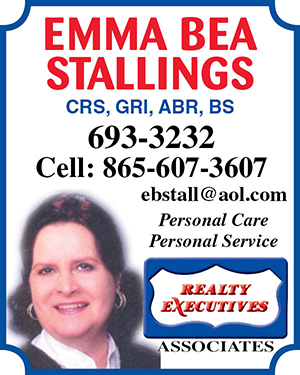Markli votes no to Laine $ boost
Farragut Board of Mayor and Aldermen’s vote to approve a change in a professional service contract with Laine Communications Inc. provoked one alderman, who voiced concerns regarding the company being asked to work on the Town’s attempts to enact a Hotel/Motel Tax.
At its meeting Thursday, March 8, BOMA was asked to approve increasing Laine Communications Inc.’s contract fee from $10,000 to $25,000.
“I’ll be opposed to spending any money to lobby for something that has not been shown — and cannot be shown — to provide any benefit to the Town,” Alderman Bob Markli said during a Board meeting Thursday, March 8.
The Board voted 3-1 — with Mayor Ralph McGill being absent — to approve the amendment to the agreement. While Vice Mayor Ron Pinchok and Aldermen Ron Williams and Louise Povlin voted in favor of the amendment, Markli voted against it.
At a Board meeting Jan. 12, the Board voted 4-1 to enact the tax subject to Tennessee General Assembly approval. Markli voted against the tax
Laine Communications Inc., led by president Chuck Laine, is a political lobbying firm. The Town entered into an agreement with the firm in November 2016 to help it monitor state legislation affecting Farragut.
“There are hundreds of bills filed each year that require significant time to review and monitor during the legislative session that may affect the operations for the Town of Farragut,” said David Smoak, Town administrator. “[The original] contract was for three years with a $10,000 annual fee.
“But this year, the Town has requested additional legislation that would authorize the Town to enact a Hotel/Motel Tax for tourism development purposes,” Smoak said.
The amendment would increase years two and three of the contract to $25,000 per year to “help secure sponsors for legislation and conferencing members of multiple committees, attending committee hearings regarding legislation and providing testimony as needed,” he said.
“I have a lot of discussion on this [issue],” Markli said. “First of all, I’d like to know how the one business entity in Town that markets to probably our largest potential source of revenue [hotels and motels], how penalizing them is going to help increase revenues for the Town. I just don’t understand that and I haven’t had a convincing explanation of that.
“And if we can’t do that, why would we want to spend money on doing something that cannot be shown to benefit the Town?” he added. “We know that for every 2 percent increase in the tax … there’s a 2.4 percent decrease in revenues from the hotel/motel industry. They are a source of revenues for the Town, but we choose to single them out.
“We have a beneficial situation here in that we have a lower tax structure that allows them to prosper and have an advantage over hotels and motels in the area around us.
“If we take that away from them, if we penalize them, we can only expect to see a decrease in revenue,” he added.
“Let me first say that we are not here to discuss the Hotel/Motel Tax,” Pinchok said. “We’re here to discuss the amending of the professional service agreement for [Laine Communications].
“… Lobbying to promote legislation, right?” Markli interjected.
“Not only for this [Hotel/Motel Tax legislation],” Pinchok answered. “Our lobbyist is working on a number of bills.”
Among those bills is legislation concerning telecommunications, Povlin said.
“There are a lot of issues that they are helping us with, and we’ve asked them to do more than they have done in the past,” Pinchok said. “From what I understand, we have gotten a pretty good deal in the past.”
“But, what I see here is it is basically pushing the Hotel/Motel tax,” Markli said.
“That’s just one item [Laine] is working on,” Pinchok said.
In other action, the Board voted unanimously to approve, on first reading, an ordinance that amends its definition of and current size requirements for residential accessory buildings. According to the current ordinance, residential additions attached to the house — or dwelling unit — are considered part of the “dwelling unit” while detached structures are considered accessory units. The approved amendment states “A building that is connected to a principal building by a breezeway that is greater than 12 feet in length shall be considered an accessory for purposes of size limitations.”


